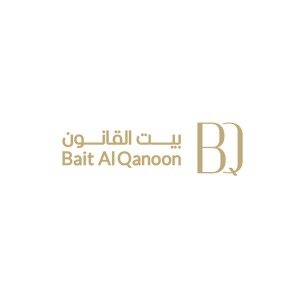Best Mining Law Lawyers in Muscat
Share your needs with us, get contacted by law firms.
Free. Takes 2 min.
List of the best lawyers in Muscat, Oman
About Mining Law in Muscat, Oman
Mining Law in Muscat, Oman, governs the exploration, extraction, and processing of mineral resources within the Sultanate's territory. The government of Oman, through its legislative framework, aims to regulate mining activities to ensure economic development, environmental protection, and sustainable use of natural resources. The core legal instrument is the Mining Law, which is designed to manage mineral rights, licensing procedures, safety standards, and the relationship between investors and the government. The Ministry of Energy and Minerals is the principal regulatory authority responsible for issuing licenses, monitoring compliance, and enforcing mining regulations in Muscat and across Oman.
Why You May Need a Lawyer
Engaging in mining operations or investments in Muscat can be complex due to the intricate local legal and regulatory requirements. You may require the assistance of a lawyer in the following situations:
- Applying for or renewing mining licenses or permits
- Negotiating mineral rights or joint venture agreements
- Ensuring compliance with environmental and safety standards
- Resolving disputes with government authorities, local communities, or business partners
- Handling foreign investment procedures and requirements
- Understanding taxation and royalty regimes for mineral extraction
- Dealing with land use issues, including surface and subsurface rights
- Responding to regulatory investigations or enforcement actions
- Mergers, acquisitions, or transfer of mining interests
- Drafting and reviewing contracts related to construction, supply, or service within the mining sector
A qualified lawyer with expertise in Omani Mining Law can provide invaluable guidance, help you avoid legal pitfalls, and protect your interests throughout the lifecycle of a mining project.
Local Laws Overview
Mining activities in Muscat and throughout Oman are primarily governed by Royal Decree No. 19 of 2019 (the Mining Law). Key aspects of these local laws include:
- Licensing and Permitting: All exploration and mining activities require licenses issued by the Ministry of Energy and Minerals. Different types of licenses cover exploration, exploitation, and the use of specific minerals.
- Ownership and Investment: The government retains ultimate ownership of all mineral resources, but private and foreign entities can obtain rights to explore and extract through government-issued licenses.
- Environmental Compliance: Mining operators must adhere to stringent environmental protection regulations, including conducting impact assessments and implementing mitigation measures.
- Local Content: Licensees are required to support local employment, training, and the use of Omani goods and services whenever possible.
- Financial Regime: Operators are subject to royalties, taxes, and guarantee requirements as determined by the regulatory authorities.
- Reporting and Inspections: Regular reporting on mining activities and financial performance is mandatory. The Ministry conducts inspections to ensure compliance.
- Health and Safety: Provisions are in place to protect the health and safety of workers and the public within mining areas.
- Dispute Resolution: Disputes arising under the Mining Law may be resolved through negotiation, administrative review, or recourse to the Omani courts.
Frequently Asked Questions
What authority is responsible for mining oversight in Muscat, Oman?
The Ministry of Energy and Minerals is the main governmental body regulating the mining sector in Muscat and the wider Sultanate.
What are the steps to obtain a mining license in Muscat?
You must submit a formal application to the Ministry of Energy and Minerals, providing technical, financial, and environmental documentation. The process involves several due diligence checks before a license is issued.
Can foreign companies participate in mining activities in Oman?
Yes, foreign companies can engage in mining in Oman, often through joint ventures or wholly owned subsidiaries, provided they comply with local ownership and licensing requirements.
What minerals are most commonly mined in Muscat?
Oman has significant deposits of copper, chromite, limestone, gypsum, and marble, which are among the most commonly mined materials.
How are mining royalties and taxes determined in Oman?
Royalties and taxes are set by law and depend on the mineral type, production levels, and contractual obligations specified in the mining license.
What environmental obligations must a mining operator fulfill?
Operators must carry out environmental impact assessments, obtain the necessary environmental permits, and implement ongoing monitoring and mitigation measures to protect the environment.
Are there special requirements regarding local employment or procurement?
Yes, the law encourages mining companies to hire Omani nationals and use local suppliers and contractors where possible, as part of Oman’s In-Country Value initiatives.
What happens if a mining company violates the Mining Law?
Violations can result in penalties, suspension or revocation of licenses, and potential legal action. The Ministry of Energy and Minerals monitors compliance closely.
Is it possible to transfer a mining license to another party?
Transfers of mining licenses are possible but require prior approval from the Ministry and compliance with all legal and regulatory conditions.
Where can I find more detailed information or documentation regarding Omani Mining Law?
Official texts of the Mining Law and related regulations are available from the Ministry of Energy and Minerals and other government publications.
Additional Resources
If you require more information or direct assistance, the following resources may be helpful:
- Ministry of Energy and Minerals - Regulatory authority for mining activities in Oman
- Oman Chamber of Commerce and Industry - Provides guidance for investors in the mining sector
- Oman Environmental Services Holding Company - For guidance on environmental permits and compliance
- Local professional legal associations - For referrals to qualified lawyers experienced in Mining Law
Next Steps
If you believe you need legal advice or assistance with a mining project in Muscat, Oman, consider the following steps:
- Collect all relevant information about your project or concern, including any licenses, contracts, or correspondence with government authorities.
- Identify and contact a legal professional or firm with experience in Omani Mining Law.
- Request a consultation to review your needs, risks, and potential strategies for compliance.
- Work closely with your legal advisor to ensure you meet all regulatory requirements, address any disputes, and safeguard your interests throughout the mining process.
- Stay informed about updates or changes to the Mining Law that may impact your current or future mining activities in Muscat.
Engaging with an experienced legal advisor at the earliest stages can help you navigate the complexities of Omani Mining Law and avoid costly mistakes as you pursue mining opportunities in Muscat.
Lawzana helps you find the best lawyers and law firms in Muscat through a curated and pre-screened list of qualified legal professionals. Our platform offers rankings and detailed profiles of attorneys and law firms, allowing you to compare based on practice areas, including Mining Law, experience, and client feedback.
Each profile includes a description of the firm's areas of practice, client reviews, team members and partners, year of establishment, spoken languages, office locations, contact information, social media presence, and any published articles or resources. Most firms on our platform speak English and are experienced in both local and international legal matters.
Get a quote from top-rated law firms in Muscat, Oman — quickly, securely, and without unnecessary hassle.
Disclaimer:
The information provided on this page is for general informational purposes only and does not constitute legal advice. While we strive to ensure the accuracy and relevance of the content, legal information may change over time, and interpretations of the law can vary. You should always consult with a qualified legal professional for advice specific to your situation.
We disclaim all liability for actions taken or not taken based on the content of this page. If you believe any information is incorrect or outdated, please contact us, and we will review and update it where appropriate.

















